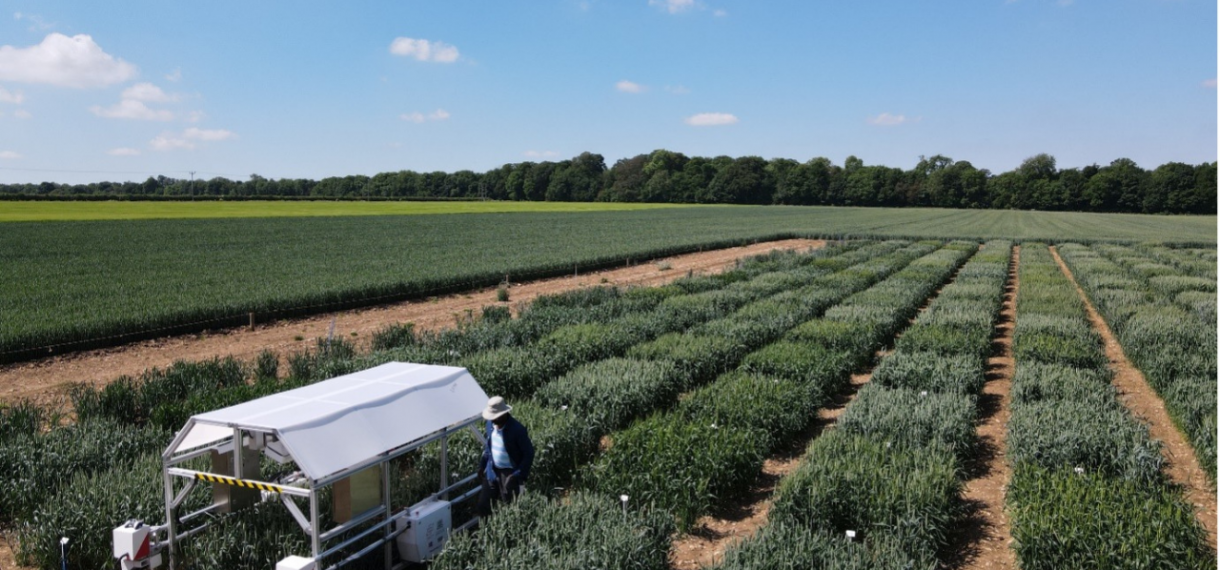

Universities of Lincoln and Cambridge win £4.9m Agri-Tech Award
The Universities of Lincoln and Cambridge have been awarded a £4.9 million grant from the Engineering and Physical Sciences Research Council (EPSRC) to help fund their drive to make the Lincolnshire and North Cambridgeshire (LINCAM) region a global innovation centre for agricultural technology.
The LINCAM region is already a major UK production centre for crop-based agriculture and the associated supply chain. Its significance and sheer scale has led to the establishment of a nationally renowned Agri-Tech cluster – centred on the Universities of Lincoln and Cambridge, where interdisciplinary Agri-Food innovation is focused on digital technologies, including robotics and artificial intelligence, to boost productivity.
Now the hope is that the Place Based Impact Acceleration Account (PBIAA) award from the EPSRC – the main funding body for engineering and physical sciences research in the UK – will deliver a step change in activity. The aim is for the LINCAM region to become an Agri-Tech gateway for the world – enabling the development of technologies at industrial scale and providing export opportunities for Agri-Tech companies and inward investment opportunities within both the Agri-Tech and primary production sectors.

Simon Pearson (pictured above), founding Director of the Lincoln Institute of Agri-Food Technology said:
“The LINCAM agricultural sector supports 88,000 jobs, generates gross value added (GVA) of £3.8 billion and farms more than 50% of the UK’s grade 1 land. However, despite this scale, there are still significant challenges and opportunities.
“Food production accounts for 24% of all UK greenhouse gas emissions, leads to significant biodiversity losses and drives challenging social issues – not least from seasonal worker influxes to rural communities. In addition, farmers are under relentless cost pressures which are eroding supply chain equity and local economies.
“These challenges are acute across the LINCAM region but this funding award offers an opportunity to harness agri-tech to secure sustainable growth, bringing high-value and skilled jobs to the region, whilst mitigating the serious environmental impacts of the food production system.”
The University of Lincoln has a long track record of Agri-Tech collaboration with the University of Cambridge and its commercialisation arm Cambridge Enterprise. Their work has included the setting up of Agriforwards CDT – the world’s first EPSRC centre for doctoral training (CDT) in Agri-Food robotics. LINCAM will build on the success of their Ceres Agri-Tech partnership with three other leading UK universities and three renowned agricultural research institutes. Ceres, funded by Research England, provides translational funding and commercialisation expertise to drive Agri-Tech innovation by accelerating high-quality research to market. It has launched four Agri-Tech spin-out companies to date and created 13 licensing opportunities.
LINCAM will broaden participation in the cluster by offering access to the EPSRC funding to all UK higher education institutes involved in Agri-Tech research with the potential to drive economic and environmental or social sustainability in the region. Projects that are successful in securing a share of the funding will be actively mentored by the LINCAM team to accelerate the delivery of results.
Professor Miles Padgett, interim executive chair at EPSRC, said:
“I’m pleased to announce our first ten Place Based Impact Acceleration Accounts which will play a unique role in enhancing the capabilities of innovation clusters across the UK.
“A key priority for UKRI is to strengthen clusters and partnerships in collaboration with civic bodies and businesses, thereby driving regional economic growth.”
The civic bodies involved in the LINCAM partnership include the Greater Lincolnshire Local Enterprise Partnership, the Cambridgeshire and Peterborough Combined Authority and West Lindsey District Council.